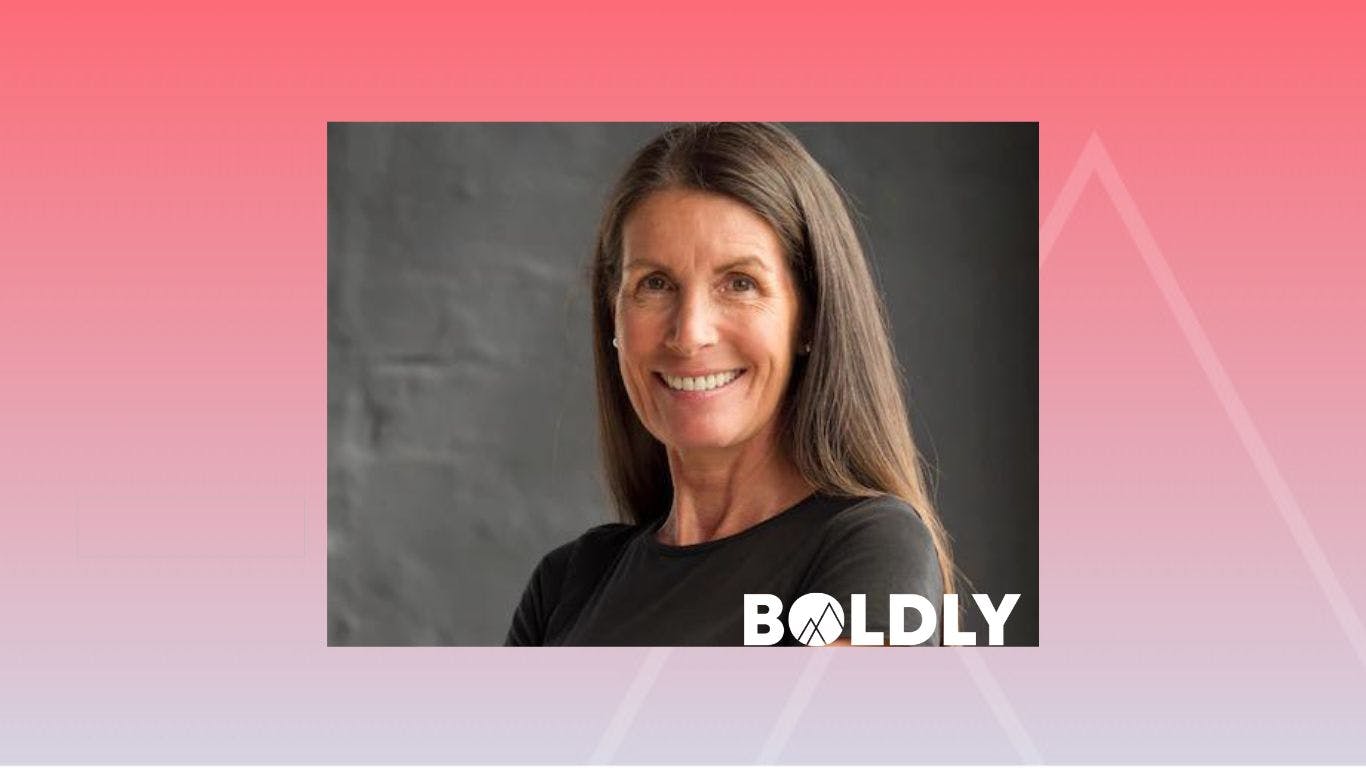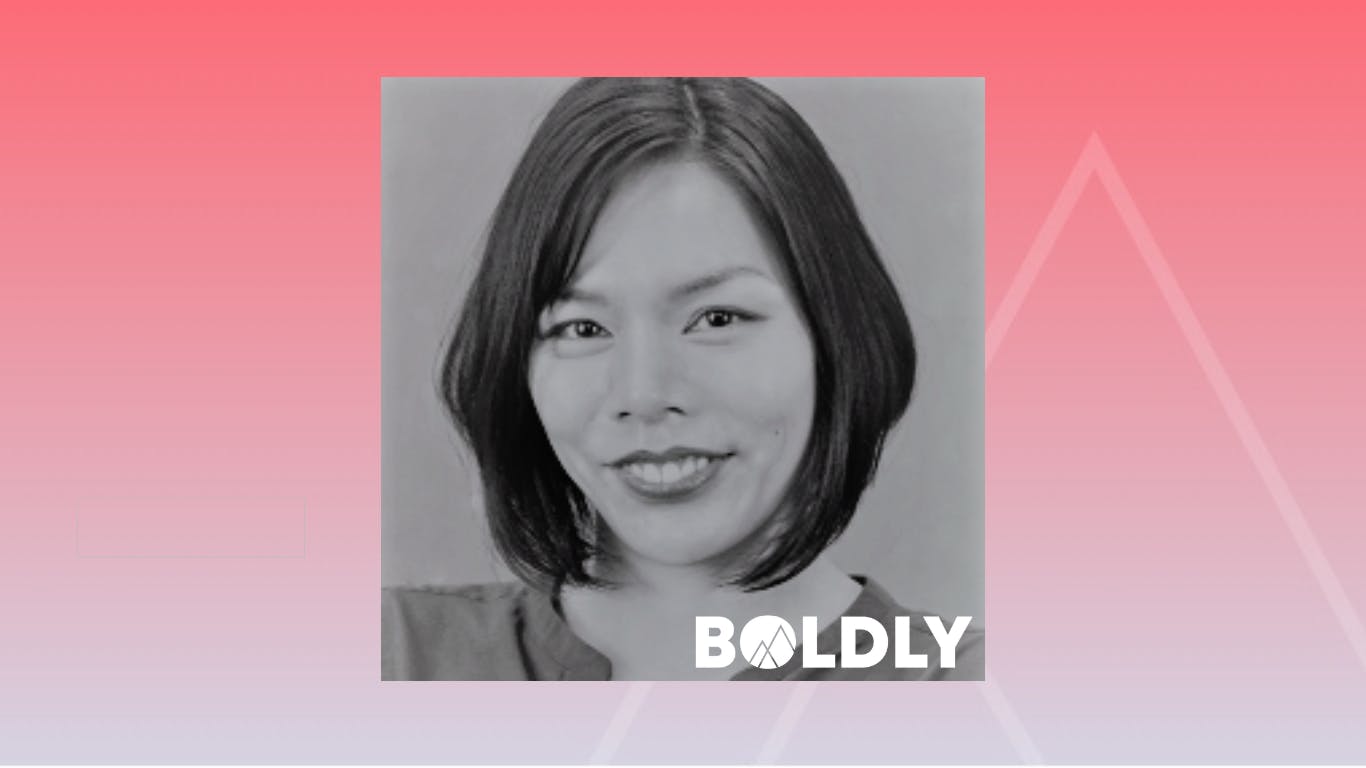Coach Spotlight: Brett Macfarlane
Posted by Katrin Blumenauer
Welcome to the BOLDLY Coach Spotlight! We’re excited to introduce Coach Brett, an executive coach with a rich background in leadership development and innovation. Drawing from his experience in Canada’s Olympic development system, he empowers leaders to navigate creativity and change while fostering healthier teams. Brett holds a Master's in Coaching and Consulting for Change from INSEAD and has worked globally, including in France and the UK. Currently serving clients in North America, EMEA, and APAC, he is dedicated to helping leaders turn adversaries into allies and drive impactful change. Join us as we dive into his insights and strategies for fostering innovation and authentic leadership!
1) What does your typical weekend look like?
A typical weekend is a mixture of reflection and action. In warmer months, I take up my role as a Ride Leader for the Rapha Cycle Club. In the winter I head out into our West Coast backyard to ski with family and friends. Whatever the sport or weather, I appreciate the conversations and hearing about what people are up to. I also like learning who has discovered new coffee spots in their travels abroad and where to find a good baguette locally.
2) Can you start by sharing a bit about your background and what led you to become an executive coach?
Becoming an executive coach was a return to my early professional roots. Before my corporate career, I learned the science and practice of high performance as an athlete and then as a coach in Canada’s Olympic development system. We were early adopters of mental and emotional management practices that became common in today’s more person-centric development and coaching paradigm.
I took these insights, models and practices into my corporate career resulting in delivering innovation for great organizations that attracted awards, patents and promotions early on. As digitalization became a priority and I moved into general management roles, I found incorporating leadership development and coaching practices in strategy processes led to far better outcomes. Thus, in 2020, I decided to specialize in what I loved most–coaching leaders of change and innovation.
3) What inspired you to focus on coaching leaders who face challenges with innovation and creativity?
Leading innovation and creativity can be hugely frustrating and lonely. Not only did I experience this firsthand but I consistently observed peers suffering with little support. This gap became evident during my research mapping innovation leadership behaviours at INSEAD, the leading global business school. Just as elite sport did 20 years ago, I felt we could take a scientific approach to support the specific needs of innovation and creative leaders operating under pressure. It’s a hypothesis that has proven true through my coaching practice leading to higher impact, healthier teams and happier careers.
4) You mention that many leaders struggle with turning adversaries into allies. What strategies do you use to help clients with this issue?
The biggest issue we all face in business and organizational life is we treat work as a wholly logical exercise. This is of course illogical because we are a group of people with our own needs trying to address them along with the goals of our role. The good news is that there are safe ways to surface and constructively overcome the perceived differences that create adversaries:
- Fault lines, by making repressed or unspoken differences salient we moderate their effect.
- Inner empathy, by understanding what needs drive or detract you, right now, moderates acting unconsciously on perceived differences.
- Outer empathy, by seeking to understand what motivates your adversary enables you to find moderating common ground and fair trade-offs.
The key to these strategies is the term "right now". This term keeps you in the here and now by focusing on the tasks your roles and organization call for. You don't have to become best friends but with the right strategies you don't become accidental combatants.
5) Why do you think innovation often leads to burnout, and how do you address this challenge with your clients?
Innovation leaders tend to exhibit above-average levels of intrinsic motivation. Yet rarely have they inquired why or reflected on how it shows up. They also tend to feel alone in their experiences. Thus they don’t notice the warning signs of burnout and may push on until a crash. The good news is that tools like The Innovation Leadership Map and Organizational Role Analysis help illuminate the drivers of your intrinsic motivation so you can better sense if they are getting overheated or if something outside your control is triggering a regressive response.
6) Can you provide an example of a successful transformation in a client’s leadership style or organizational culture that you facilitated?
There has been a pattern I see regularly with values or purpose-driven leaders. I call it the shock block. It’s a pattern when typically emotionally balanced leaders find themselves in a situation where they feel idealized. They are overwhelmed by this feeling and react by becoming withdrawn or cynical. Consequently, they lose their voice only to lash out or walk out altogether.
What confuses and frustrates them is that the reaction is very unlike them. In the following weeks or months, they feel inhibited and lose clarity of their vision, values and practices. Self-doubt creeps in as confidence drains away. There is a high risk of burnout or misdirection. Their teams become confused, momentum slows, interpersonal conflict increases and results decline.
The cause almost always is a hidden competing commitment imprinted deep in their subconscious from earlier life experiences. They may come from family members, teachers, community leaders, teammates or early colleagues. By mapping these influences from their leadership biography, the imprints emerge of contrasting role models. The shock block comes from associating themselves with a "bad leader" from their past. This is a classic case of transference–responding in the present to something from our past.
Amazingly, this hidden competing commitment dissolves almost instantly once seen. Often with great relief. It is a transformative breakthrough that enables them to re-imprint a better version of who they are as a leader. It takes some work, experimentation and repetition but the results can be profound.

7) With your experience in North America, Europe, and Asia-Pacific, how do you adapt your coaching methods to different cultural contexts?
Adapting to different cultural contexts is often about adapting to different communication styles and preferences. Many leaders are a mix of cultural contexts. For example, I’m a Canadian by birth who studied in the USA and tend to be low-context and fairly direct (as in saying what I mean). I also enjoyed living and working in France, where one of my teams was based in Hong Kong–both are high-context cultures where what is said carries additional unspoken meaning. I've learned to decode and adapt seamlessly when switching between cultural contexts through evidence-based frameworks like Erin Meyer’s Culture Map and Richard Lewis’ When World Collide. This adaptability is highly relevant if your day rapidly switches between cultures from one Zoom call to the next.
8) What role does emotional intelligence play in effective leadership, and how do you help your clients develop this skill?
I was privileged to be trained by Dr. Howard Books who helped develop much of the seminal research and understanding of emotional intelligence. It makes me confident to say that effective leadership is practiced emotional intelligence–both within yourself or with empathy for others. A big part of my role as a coach is to identify which of the emotional intelligence’s 16 dimensions may be helping or hindering you–so that you can target the emotional intelligence muscles like impulse control or self-regard to achieve better professional and personal outcomes.
9) What are some common misconceptions leaders have about the process of change and innovation?
Innovation and change persistently suffer from the misconceptions that they are purely rational technical challenges that result from a single heroic leader. The well-evidenced reality is that innovation and change are predominantly social processes entirely dependent on collaboration even if the initial idea originated with an individual. In reality, there is no single archetype of an innovation or change leader. Through coaching and leadership development we can support any leader to develop their practice and way of driving change through new ideas.
10) Looking ahead, what trends or developments in leadership and innovation are you most excited about, and how do you plan to address them in your coaching practice?
Here are three areas where Leadership Development is evolving to enable more impactful and satisfying innovation.
- Hyper collaboration - the benefits of integrating leadership development with strategy processes have proven themselves in recent years. The next step is to normalize collaborative approaches to strategy implementation with one-to-one coaching support to close the knowing-doing gap.
- Virtualization of development - the logical next step of simulations for developing high-stakes skills is to use virtualized environments. I find these get as close as possible to real-world situations to prepare for decision-making amidst uncertainty, complexity and ambiguity.
- Self-awareness science - the evidence increasingly tells us that self-awareness of behavioural origins from our past enables you to lead more authentically and effectively in the present. Who doesn’t want higher impact, healthier teams and happier careers?
More About Brett
Brett helps you meet goals and manage the unique challenges of working in cultures that value innovation, creativity, or digitalization. As an experienced coach, he works with your talents and the dynamics of your organization to develop practical awareness, insight, and action.
Serving as your thought partner, he listens non-judgmentally, explores the human dynamics you are navigating, and helps generate new ways of thinking and acting. He supports you to drive higher impact, healthier teams, and a happier career.
Common challenges Brett addresses:
- What is my authentic leadership style?
- How do I manage stakeholders/executives?
- Why is my organization resisting change?
- How do I communicate across cultures?
- What are ways to empower my teams?
- How do I drive accountability?
- How can I turn adversaries into allies?
- Why is innovation so emotional and paradoxical?
Before dedicating himself to leadership development, Brett led innovation and transformation programs for some of the world’s largest and most innovative organizations. He brings a lot of insight and over 200 awards from his time with central banks, American Express, Apple, Unilever, and a host of high-growth startups.
Brett has a Master's in Coaching and Consulting for Change from INSEAD, the leading global business school based in France. He is a Canadian who previously lived and worked in France and the UK. He currently works with clients in North America, EMEA, and APAC.
If Brett’s profile resonates with you, request to book a chemistry meeting with him. He would love to explore if he can support you in making a dent in the universe. To learn more about the full range of services BOLDLY has to offer, contact connect@boldly.app.
About the Author:
Katrin Blumenauer is a former leadership and OD consultant from Germany, who spent most of her years in the U.S. and Mexico, and is currently based in Asia. She is passionate about bringing BOLDLY’s highly experienced and qualified coaches together with matching clients. As Head Coach Business Partner, she oversees the team screening and onboarding coach applications to the global marketplace. As a psychologist and certified coach on the path towards accreditation, Katrin is keen to drive BOLDLY vision in making coaching more globally accessible while upholding the highest training and ethical standards.
Connect with Katrin here.




